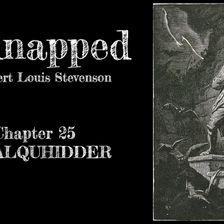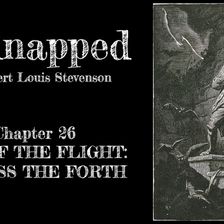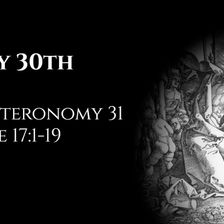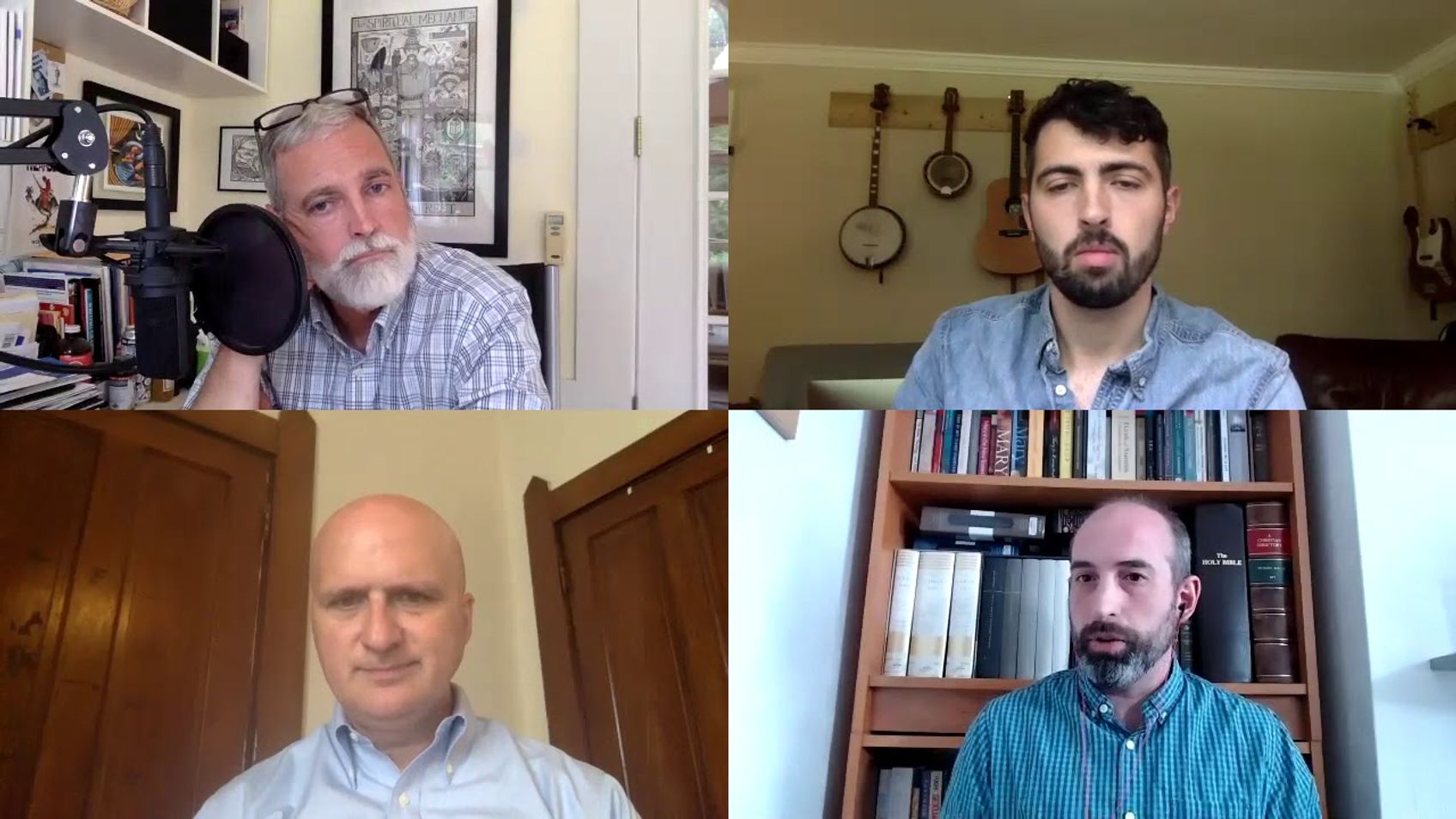A Conversation with Aaron Renn, Alastair Roberts, & C.R. Wiley
May 29, 2020

Alastair Roberts
I joined my friends Aaron Renn (of the superb Masculinist newsletter) and C.R. Wiley (author of 'Man of the House' and 'The Household and the War for the Cosmos') for a webinar in which we discussed the wisdom and skills by which we can respond well to crisis.
More From Alastair Roberts

Kidnapped—Chapter 25: In Balquhidder
Alastair Roberts
May 29, 2020
For the Easter season, I am posting some rather different things on this channel, in addition to my regular output, as a little gift to my followers a

Kidnapped—Chapter 26: End Of The Flight: We Pass The Forth
Alastair Roberts
May 29, 2020
For the Easter season, I am posting some rather different things on this channel, in addition to my regular output, as a little gift to my followers a

May 30th: Deuteronomy 31 & Luke 17:1-19
Alastair Roberts
May 29, 2020
A new leader for Israel. Forgiveness and faith.
Reflections upon the readings from the ACNA Book of Common Prayer (http://bcp2019.anglicanchurch.net/

May 29th: Deuteronomy 30 & Luke 16
Alastair Roberts
May 28, 2020
Circumcising Israel's heart. The Parable of the Unjust Steward and the Rich Man and Lazarus.
Reflections upon the readings from the ACNA Book of Comm

Kidnapped—Chapter 24: The Flight In The Heather: The Quarrel
Alastair Roberts
May 28, 2020
For the Easter season, I am posting some rather different things on this channel, in addition to my regular output, as a little gift to my followers a

Kidnapped—Chapter 23: Cluny's Cage
Alastair Roberts
May 28, 2020
For the Easter season, I am posting some rather different things on this channel, in addition to my regular output, as a little gift to my followers a
More on OpenTheo

Why Is It Necessary to Believe Jesus Is God?
#STRask
February 19, 2026
Questions about why it’s necessary to believe Jesus is God, whether belief in the Trinity is required for salvation, and why one has to believe in the

Christmas Cranks and Christmas Blessings with Justin Taylor and Collin Hansen
Life and Books and Everything
December 17, 2025
If you are looking for a podcast where three friends talk about whatever they want to talk about and ramble on about sports, books, and grievances, th

Is 1 Corinthians 12:3 a Black-and-White Tool for Discernment?
#STRask
October 27, 2025
Questions about whether the claim in 1 Corinthians that “no one can say ‘Jesus is Lord’ except in the Holy Spirit” is a black-and-white tool for disce

What Tools of Reasoning Help You Know What’s True, Right, and Good?
#STRask
December 4, 2025
Question about what tools of reasoning help us determine whether something is true or false, right or wrong, good or bad before bringing Scripture int

Are Demon Possessions and Exorcisms in the New Testament Literal?
#STRask
December 11, 2025
Questions about whether references to demon possessions and exorcisms in the New Testament are literal, how to talk to young children about ghosts, an

Kingdom Priorities: Following the Teachings of Jesus
Knight & Rose Show
February 14, 2026
Wintery Knight and Desert Rose discuss Jesus' teachings from the Gospels, emphasizing truth, evidence, self-denial, and forgiveness. They explore pass

How Would You Convince Someone That Evil Exists?
#STRask
November 17, 2025
Questions about how to convince someone that evil exists, whether Charlie Kirk’s murder was part of God’s plan, whether that would mean the murderer d

Why Would Any Rational Person Have to Use Any Religious Book?
#STRask
December 8, 2025
Questions about why any rational person would have to use any religious book, whether apologetics would be redundant if there were actually a good, un

How Do I Reconcile the Image of God as Judge with His Love, Grace, and Kindness?
#STRask
October 20, 2025
Questions about how to reconcile the image of God as a judge with his love, grace, and kindness, why our sins are considered to be sins against God, a

How Do We Advocate for Christian Policy Without Making the Government Interfere in Every Area of Life?
#STRask
November 20, 2025
Questions about how to advocate for Christian policy without making the government interfere in every area of life, and the differences between the mo

Does God Really Need a “Pound of Flesh” to Forgive Sins?
#STRask
January 12, 2026
Questions about how to answer the challenge that God doesn’t need a “pound of flesh” to forgive sins but can simply forgive, and whether the claim in

Are You Accursed If You Tithe?
#STRask
December 15, 2025
Questions about whether anyone who tithes is not a Christian and is accursed since Paul says that if you obey one part of the Mosaic Law you’re obliga

How Can We Know Who Is Teaching the Same Gospel Paul Taught?
#STRask
February 16, 2026
Questions about how we can know who is teaching the same gospel Paul taught, and whether or not Jeremiah 1:5 supports the idea that we pre-existed in

How Do You Justify Calling Jesus the Messiah?
#STRask
December 18, 2025
Questions about how one can justify calling Jesus the Messiah when he didn’t fulfill the Hebrew messianic prophecies, and whether the reason for the v

What Are Some Good Ways to Start a Conversation About God with Family Members?
#STRask
October 30, 2025
Questions about how to start a conversation about God with non-Christian family members, how to keep from becoming emotional when discussing faith iss
